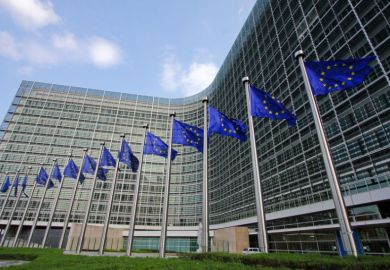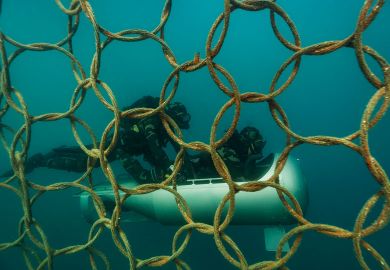The new Labour government has said that the UK would be interested in associating to the successor programme to Horizon Europe if it provides “good value” for researchers and taxpayers.
The European Commission is in the early stages of designing its next research and innovation framework programme, currently known as FP10, which is due to get under way in 2028.
It will replace the €100 billion (£84 billion) Horizon Europe, which the UK spent two post-Brexit two years outside of before rejoining as an associate member at the start of 2024.
In a position paper published on 26 September, the Department for Science, Innovation and Technology sets out the UK’s hopes for FP10, urging “evolution…rather than revolution” and a continued focus on research excellence.
“Having associated to Horizon Europe, we want UK scientists, innovators, businesses and institutions to continue to work together in pursuit of excellence with partners across Europe and hope that the developing proposals for FP10 will support this collaboration,” the paper says.
“The UK will, of course, be interested in potentially associating to FP10 assuming it is open, relevant and provides good value for our research community and the UK taxpayer.”
University leaders had urged ministers to signal their intention to associate to FP10 “as early as possible”, warning that UK-based researchers could not afford a repeat of the uncertainty caused by the long absence from Horizon Europe.
The commission has long wrestled with the competing priorities of funnelling funding to existing centres of research excellence – essentially, backing winners that are the likeliest to deliver the greatest returns in terms of scientific and societal impact – or doing more to support capacity building in member states with less-developed research systems.
The UK’s submission comes down firmly on the side of excellence, arguing: “Promoting and attracting excellence from across the globe is fundamental to harnessing the full potential of Europe’s research and innovation capabilities through the entire research pipeline. As such, the UK strongly believes that excellence should remain at the very core of FP10.”
It adds that it is “critically important that there is still a place for discovery-led, curiosity-driven science of the type funded by the European Research Council (ERC) and the Marie Sklodowska-Curie Actions, which so strongly contribute to international recognition of Europe’s research strengths”.
However, the submission adds that capacity building “is vital for harnessing the continent’s potential” and suggests that there “may be merit to exploring a regional rather than a national lens to contribute greater benefits to European research excellence given the wide diversity of regions across Europe and the range of institutions not currently reached by EU funding”.
The commission has also debated whether non-European Union countries should be excluded from projects in some sensitive research areas, amid rising concern about geopolitical tensions with China and other rival nations.
But the UK paper says that FP10 should “enable the equal participation of like-minded associated countries in all areas of the programme from its very inception”, recognising that the UK and the EU already worked closely together on security issues.
“It is important that the effort to protect research from misuse by malign actors does not close off genuine opportunities for like-minded countries to cooperate,” the paper says. “There is scope for member states and associated countries to pool our collective experience to facilitate research, safeguard research security and protect research integrity while minimising these risks.”
And, following debate about whether ERC funds could be redirected to researching the Covid-19 pandemic, the submission adds that there “would be clear benefits to creating a programme with sufficient flexibility to address emerging threats to the health and security of citizens”.
Peter Kyle, the UK’s science secretary, said that researchers could “aim higher and go further when we work together with friends and allies”.
“Horizon Europe’s successor programme will have a profound impact on how research is conducted internationally and how the world tackles some of the biggest challenges facing humanity, from boosting health to addressing climate change. In that spirit of shared endeavour, we want to work collaboratively to make FP10 the best it can be, for the good of everyone,” Mr Kyle said.
Research organisations have called for the budget for FP10 to stand at double the Horizon Europe total, with the commission expected to deliver a proposal by mid-2025.
Douglas Dowell, policy manager at the Russell Group, said the UK’s focus on excellence and fundamental research was “particularly welcome”.
“Association to FP10 would offer a long-term, stable basis to work with the EU and associated partners on some of the biggest challenges we face,” he said. “It will also mean we can maximise gains from the networks and collaborations being forged in Horizon Europe.”
Register to continue
Why register?
- Registration is free and only takes a moment
- Once registered, you can read 3 articles a month
- Sign up for our newsletter
Subscribe
Or subscribe for unlimited access to:
- Unlimited access to news, views, insights & reviews
- Digital editions
- Digital access to THE’s university and college rankings analysis
Already registered or a current subscriber?








